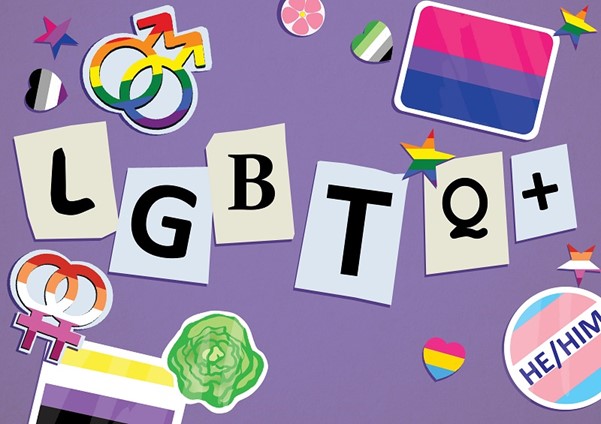By Stephanie S. DINKO
In a historic move that has captivated the nation,the Parliament of Ghana is currently engaging on a crucial piece of legislation; thus, the Proper Human Sexual Rights And Ghanaian Family Values Bill. This proposed law, touted as a landmark initiative, seeks to redefine the very fabric of Ghanaian society, touching upon deeply personal and culturally sensitive issues surrounding family structures and individual freedoms.
As the debate rages on within the hallowed halls of the legislative chamber, the public has been left both intrigued and baffled, wondering about the intricate procedures and processes that will ultimately shape the fate of this controversial bill.
What are the parliamentary protocols that must be navigated? How do lawmakers balance the demands of constituents, cultural norms, and the country’s international obligations?
This write-up delves into the inner workings of Ghana’s legislative machinery, throwing light on the stages of passing a bill into law; thus, from the initial introduction of the bill to the final vote, the available options when a bill is not assented to by the president and other delicate aspects.
This captivating piece takes readers on a journey that promises to enlighten, inform and perhaps, even provoke deep introspection on the delicate balance between tradition, progress and the evolving notions of family and individual rights in modern-day Ghana.
Overview of the Proper Human Sexual Rights and Ghanaian Family Values Bill (Anti-LGBTQ+) bill
Ghana, a country located in West Africa, is seen as a conservative society with strong cultural and religious influences. In Africa, Ghana is exemplified as one of the few countries able to sustain and maintain a stable democratic system of governance over a long period of time.
On February 28, 2024, a cross-section of Ghanaian citizens were excited over the news of the passage of the Proper Human Sexual Rights And Ghanaian Family Values Bill by the Parliament of Ghana after several controversial debates. The bill imposes prison sentence for consensual same-sex conduct of up to three years on anyone convicted of identifying as LGBTQ+ and also imposes a maximum of five-year jail term for forming or funding LGBTQ+ groups.
Thus, to say it criminalises individuals and organisations who advocate for the rights of lesbian, gay, bisexual and transgender (LGBT) people. The bill, so far, has the backing of Ghana’s two major political parties and will come into effect only if President Nana Akufo-Addo signs it into law.
Legislative structure of Ghana
As mentioned earlier, Ghana’s system of governance is a democratic one, with a separation of powers between the executive, legislative and judicial branches. The legislative body is responsible for making laws, scrutinising the executive and representing the interests of the citizens. In Ghana, Parliament is responsible for enacting laws, amending the existing laws and overseeing government actions. Bills, which are proposed laws, undergo a rigorous process within Parliament before enacted legislation.
Stages of passing a bill into law in Ghana
- First reading: The first reading makes room for a bill to be introduced to Parliament for the first time, as well as its title read. The main aim is to formally introduced the bill, allowing Members of Parliament (MPs) to be aware of its content. The bill is referred to the relevant committee for investigation and examination. It is important to note that no debate happens at this stage.
- Second reading: Considerations made by the committee in the first readings produces the basis for the second reading. The second reading is more comprehensive and gives a detailed consideration of the bill. The objectives, principles, policies and general contents of the bill are debated by MPs. After the debate, a vote is taken and if the majority of MPs support the bill, it progresses to the next stage.
- Consideration or committee stage: The bill is referred to a parliamentary committee for detailed scrutiny. Here, the bill is examined clause by clause, and amendments made where necessary. A report on the bill is presented to Parliament after the committee’s scrutiny. MPs have the opportunity to debate the proposed amendments and make further changes to the bill.
- Third reading: Unlike the second reading which focuses on the principles, objectives and policies, this stage focuses on the details and amendments made during the committee stage. The bill is debated for the final time in Parliament; then, a vote is taken. If the bill receives majority support, it proceeds to the next stage.
- Assent by the President: After passing through Parliament, the bill is sent to the president for assent. The President can either give assent, in which case the bill becomes law; or withholds assent, effectively vetoing the bill. However, if the President withholds assent, the bill can still become a law if Parliament overrides the veto with a two third majority vote in both the Parliament House and the Council of State.
According to Article 106 of the 1992 Constitution of Ghana, where a bill is passed by Parliament and presented to the President for assent, he shall within seven days assent to the bill .Once the bill receives presidential assent, it is published in the official government gazette and becomes a law. The effective date of the law is usually specified as well. The new law is, hence, published in the Gazette and enters into force.
It is important to note that even though the Anti-Gay Bill has been passed by Parliament, it is not a law yet and cannot be implemented; hence, the punishments outlined in this bill cannot be enforced.
>>>the writer is a Law Student, Accra








![“I made Shatta Wale who he is today” – Singer Kay Smooth alleges [Video]](https://ghananewss.com/storage/2023/04/Kay-Smooth-Shatta-Wale-100x75.jpeg)

![Mr Logic’s Red Panther record label officially signs two Afro-dancehall artistes[Video]](https://ghananewss.com/storage/2023/05/Mr-Logic-signs--100x75.jpeg)






